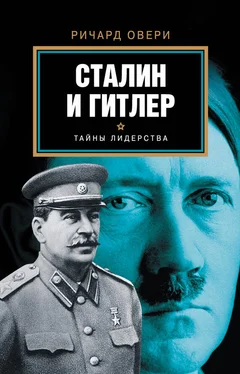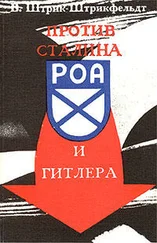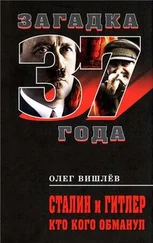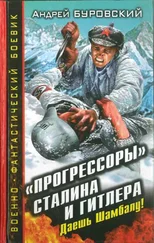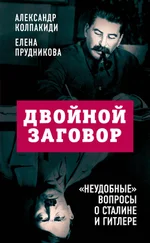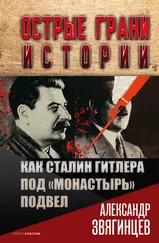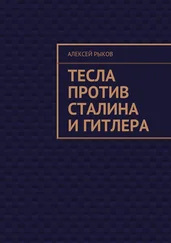Adam, P. Arts of the Third Reich (London, 1992).
Addison, P. and Calder, A. (eds) Time to Kill: The Soldier’s Experience of War in the West 1939–1945 (London, 1997).
Agursky, M. ‘An Occult Source of Socialist Realism: Gorky and Theories of Thought Transference’, in B. G. Rosenthal The Occult in
Russian and Soviet Culture (Ithaca, NY, 1997), pp. 225–46.
Alexopoulos, G-Exposing Illegality and Oneself: Complaint and Risk in Stalin’s Russia’, in P. PL Solomon Reforming justice in Russia 1864–1996 (New York, 1997), pp. 168–89.
Alexopoulos, G. Stalin’s Outcasts: Aliens, Citizens, and the Soviet State 1926–1936 (Ithaca, NY, 2003).
Allen, M. T. ‘The Banality of Evil Reconsidered: SS Mid-level Managers of Extermination through Work’, Central European History, 30 (1997), pp. 253–94.
Allen, M. T. The Business of Genocide: The SS, Slave Labor, and the Concentration Camps (Chapel Hill, NC, 2002).
Altshuler, M. Soviet Jewry on the Eve of the Holocaust (Jerusalem, 1998).
Aly, G. ‘Final Solution’: Nazi Population Policy and the Murder of the European Jews (London, 1999).
Aly, G. and Heim, S. Architects of Annihilation: Auschwitz and the Logic of Destruction (London, 2002).
Amis, M. Koba the Dread: Laughter and the Twenty Million (New York, 2002).
Anderson, T. ‘Incident at Baranivka: German Reprisals and the Soviet Partisan Movement in Ukraine, October-December 1941’, Journal of Modern History, 71 (1999), pp. 585–623.
Andrew, C. and Gordievsky, O. KGB: the Inside Story (London, 1990).
Andreyev, C. Vlasov and the Russian Liberation Movement: Soviet Reality and Ëmigré Theories (Cambridge, 1987).
Andrle, V. A Social History of Twentieth-Century Russia (London, 1994).
Andrle, V. Workers in Stalin’s Russia: Industrialization and Social Change in a Planned Economy (New York, 1988).
Antonov-Ovseyenko, A. The Time of Stalin: Portrait of a Tyranny (New York, 1981).
Applebaum, A. Gulag: a History of the Soviet Camps (London, 2003).
Arbogast, C. Herrschaftsinstanzen der württembergischen NSDAP: Funktion, Sozialprofi l und Lebenswege einer regionalen NSElite 1920–1960 (Munich, 1998).
Armstrong, J. A. (ed.) Soviet Partisans in World War II (Madison, Wise, 1964).
Armstrong, J. A. Ukrainian Nationalism (3rd edn, Englewood, Colo., 1990).
Attwood, L. (ed.) Red Women on the Silver Screen: Soviet Women and Cinema from the beginning to the end of the Communist era (London, 1993).
Audoin-Rouzeau, S., Becker, A., Ingrao, C. and Rousso, H. (eds) La Violence de guerre 1914–1945 (Brussels, 2002).
Avtorkhanov, A. The Communist Party Apparatus (Chicago, 1961).
Axell, A. Stalin’s War Through the Eyes of his Commanders (London, 1997).
Axell, A. Zhukov (London, 2003).
Ayass, W. Asoziale im Nationalsozialismus (Stuttgart, 1995).
Bacon, E. The Gulag at War: Stalin’s Forced Labour System in the Light of the Archives (London, 1994).
Bacon, E. T. ‘Soviet Military Losses in World War II’, Journal of Slavic Military Studies, 6 (1993), pp. 613–33.
Baigent, M. and Leigh, R. Secret Germany: Claus von Stauffenberg and the Mystical Crusade against Hitler (London, 1994).
Bailes, K. E. ‘The American Connection: Ideology and the Transfer of American Technology to the Soviet Union, 1917–1941’, Comparative Studies in Society and History, 23 (1981), pp. 421–48.
Bailes, K. E. ‘Stalin and the Making of a New Elite: A Comment’, Slavic Review, 39 (1980), pp. 286–9.
Bailes, K. E. Technology and Society under Lenin and Stalin: Origins of the Soviet Technical Intelligentsia (Princeton, NJ, 1978).
Baird, J. W. To Die for Germany: Heroes in the Nazi Pantheon (Bloomington, Ind., 1990).
Bajohr, F. ‘Arisierung’ in Hamburg; Die Verdrängung der jüdischen Unternehmer 1933–1945 (Hamburg, 1997).
Bajohr, F. Parvenüs und Profi teure. Korruption in der NS-Zeit (Frankfurt am Main, 2001).
Bakels, F. B. Nacht und Nebel: Das Bericht eines holländischen Christen aus deutschen Gefängnissen und Konzentrationslagern (Frankfurt am Main, 1979).
Baldauf, I. ‘Some Thoughts on the Making of the Uzbek Nation’, Cahiers du monde russe, 32 (1991), pp. 79–96.
Balderston, T. Economics and Politics in the Weimar Republic (Cambridge, 2002).
Balfour, M. Withstanding Hitler in Germany 1933–1945 (London, 1988).
Ball, A. M. Russia’s Last Capitalists: The Nepmen, 1921–1929 (Berkeley, Calif., 1987).
Banach, J. Heydrichs Elite: Das Führerkorps der Sicherheitspolizei und des SD 1936–1945 (Paderborn, 1998).
Barber, J. ‘The Moscow Crisis of October 1941’, in J. Cooper, M. Perrie and E. A. Rees (eds) Soviet History 1917–1953: Essays in
Honour of R. W. Davies (London, 1995).
Barber, J. and Harrison, M. (eds) The Soviet Defence-Industry Complex from Stalin to Khrushchev (London, 2000).
Barber, J. and Harrison, M. The Soviet Home Front 1941–1945 (London, 1991).
Barkai, A. From Boycott to Annihilation: The Economic Struggle of German Jews, 1933–1943 (Hannover, NJ, 1989).
Barkai, A. Nazi Economics: Ideology, Theory, and Policy (Oxford, 1990).
Barnes, J. J. and Barnes, P. P. Hitler’s Mein Kampf: Britain and America: a Publishing History 1930–39 (Cambridge, 1980).
Barnett, V. For the Soul of the People: Protestant Protest against Hitler (Oxford, 1992).
Barnett, V. Kondratiev and the Dynamics of Economic Development: Long Cycles and Industrial Growth in Historical Context (London, 1998).
Barron, S. (ed.) ‘Degenerate Art’: The Fate of the Avant-Garde in Nazi Germany (New York, 1991).
Barros, J. and Gregor, R. Double Deception: Stalin, Hitler and the Invasion of Russia (Dekalb, Ill., 1995).
Bärsch, C.-E. Die politische Religion des Nationalsozialismus (Munich, 1998).
Bartlett, R. Wagner in Russia (Cambridge, 1995).
Bartov, O. The Eastern Front 1941–1945: German Troops and the Barbarization of Warfare (New York, 1985).
Bartov, O. Hitler’s Army: Soldiers, Nazis and War in the Third Reich (Oxford, 1991).
Bartov, O. The Missing Years: German Workers, German Soldiers’, in D. Crew (ed.) Nazism and German Society 1933–1945
(London, 1994), pp. 41–66.
Bashalov, A. General Vlasov – predatel’ ili geroi? (St Petersburg, 1994).
Baykov, A. The Development of the Soviet Economic System (Cambridge, 1947).
Beachley, D. R. ‘Soviet Radio-Electronic Combat in World War II’, Military Review, 61 (1981), pp.???.
Beaumont, J. Comrades in Arms: British Aid to Russia 1941–1945 (London, 1980).
Beetham, D. Max Weber and the Theory of Modern Politics (London, 1974).
Behrenbeck, S. Der Kult um die toten Helden: nationalsozialistische Mythen, Riten und Symbole (Vierow bei Greifswald, 1996).
Beier, G. Die illegale Reichsleitung der Gewerkschaften 1933–1945 (Cologne, 1981).
Beirne, P. (ed.) Revolution in Law: Contributions to the Development of Soviet Legal Theory, 1917–1938 (New York, 1990).
Bendersky, J. W. Carl Schmitt: Theorist for the Reich (Princeton, NJ, 1983).
Benvenuti, F. ‘A Stalinist Victim of Stalinism: “Sergo” Ordzhonikidze’, in J. Cooper, M. Perrie and E. A. Rees (eds) Soviet History 1917–1953: Essays in Honour of R. W. Davies (London, 1995), pp. 134–57.
Benvenuti, F. ‘Industry and Purge in the Donbass 1936–37’, Europe – Asia Studies, 45 (1993), pp. 57–78.
Bergan, R. Sergei Eisenstein: a Life in Confl ict (New York, 1997).
Bergen, D. ‘The Nazi Concept of the Volksdeutsche and the Exacerbation of Anti-Semitism in Eastern Europe 1939–1945’, Journal of
Contemporary History, 29 (1994), pp. 569–82.
Berghahn, V. Der Stahlhelm: Bund der Frontsoldaten 1918–1935 (Düsseldorf, 1966).
Bergmeier, H. and Lotz, R. E. Hitler’s Airwaves: the Inside Story of Nazi Radio Broadcasting and Propaganda Swing (New
Читать дальше
Конец ознакомительного отрывка
Купить книгу
